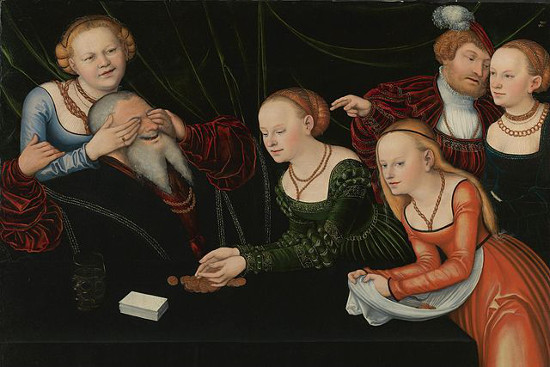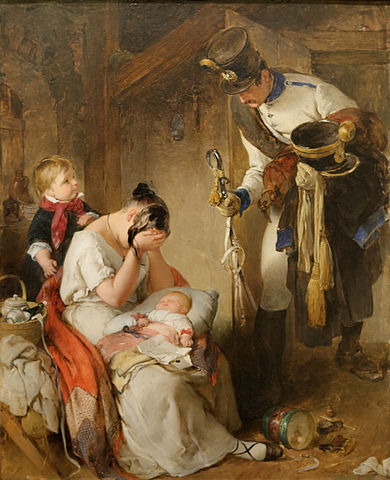
meretriculate
v. to deceive in the manner of a prostitute
BOW-STREET — Eliza Merchant, a black-eyed girl, of that class of women known as ‘unfortunates,’ was charged by Garnet Comerford, a sailor, with robbing him of four sovereigns, several dollars and half-crowns, and his shoes. The tar stated that on Wednesday evening, about eight o’clock he left the house of his Captain, the honourable Mr. Duncan, at the west end of town, intending to pay a visit to a sister, whom he had not seen since he left England in the Seringapatem. On the way, he met as tight a looking frigate as ever he clapt his eyes on. She hoisted friendly colours; he hove to; and they agreed together to steer into port. They sailed up the Strand, when she said she would tow him to a snug berth, and he should share her hammock for the night. He consented; and when he awoke in the morning he found that she had cut and run. His rigging had been thrown all about the room, his four sovereigns and silver, and shoes were carried off.
— The Morning Chronicle, Dec. 8, 1828






